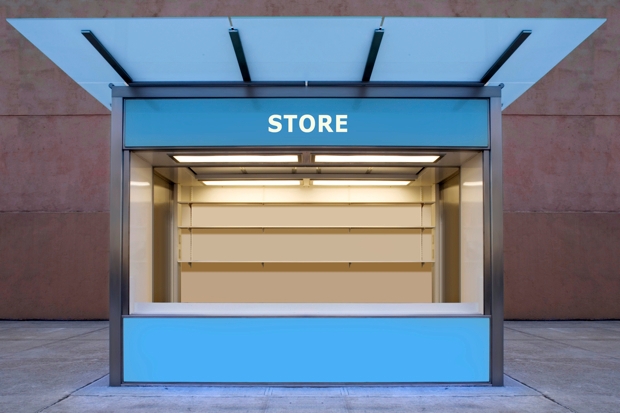How do you play the lottery? The National Lottery website has a handy guide. Step No. 1 is: ‘Go into a store.’ But in my experience, lottery tickets are sold mostly in shops, along with confectionery and tobacco. You can, it is true, get them in Sainsbury’s, but I wouldn’t call that a store either, but a supermarket. Yet 2014 looks like the year of a fight to the death between shop and store.
Store is making aggressive gains through the phrase in store. It is the opposite of online (which has now become one word, not only as an attributive adjective (‘online gambling’) but also adverbially (‘he began to gamble online’).
Tesco now sees itself as having three ways of shopping: in store, online or mobile. By the last it does not mean ‘from a mobile shop’, but ‘by means of a mobile phone’ (with the help of an app, natch). Oddly enough, you still shop (as a verb) in store. Online you begin by signing in ‘to start or amend a shop’ — a shop here meaning an act of going shopping, as in ‘a big shop’ for the whole week.
The clothes shop Next has a little form to fill in online if you want a quick shop. This is headed ‘Quickshop’. But its shops are called stores even so, and customers can find their nearest store online with the help of a Store Locator. If, however, you click on the label Shop Sale, you are answering an invitation to shop online for sale goods (not to visit a shop for a sale). Just after Christmas there were rich pickings: ‘3D Turkey Slippers’ (complete with sprig-of-holly insignia) for only £8, or a ‘Red Stupid Xmas T-Shirt’ (bearing the message ‘Stupid Christmas T-Shirt’) for only £4. I feel that I might have found my husband’s ‘gift solution’ for Christmas 2014.
In the sense ‘shop’, the Oxford English Dictionary says that store ‘has not become common in the UK’. That note was not included in 1917, when the entry was first compiled, but added in 1989. Soon, if the shops themselves persuade their customers to change to store, the dictionary will have to catch up.





Comments